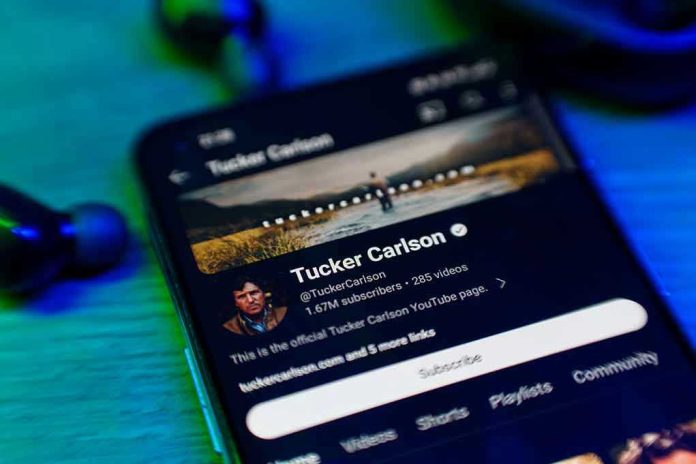
The clash between a media firebrand and the nation’s top law enforcement agency over the truth behind a presidential assassination attempt has become a flashpoint in America’s ongoing battle for trust in its institutions.
Story Snapshot
- Tucker Carlson accused the FBI of covering up the online footprint of the Trump shooter.
- The FBI publicly refuted Carlson’s claims, defending its investigative transparency.
- The incident has triggered congressional hearings and a national debate on agency accountability.
- Political polarization and media influence are shaping public perception of law enforcement credibility.
The Spark That Lit the Firestorm
On July 13, 2024, a 20-year-old gunman opened fire at a Donald Trump rally in Butler, Pennsylvania, killing himself when Secret Service counter-snipers intervened. The immediate aftermath saw the FBI and Secret Service release preliminary findings: the shooter, Thomas Crooks, had no significant online footprint. This assertion quickly became the center of a media firestorm when Tucker Carlson, the former Fox News host, publicly accused the FBI of lying and covering up Crooks’ digital history. Carlson’s claim, delivered with his signature blend of skepticism and outrage, struck a nerve with millions of viewers who already question the integrity of federal agencies.
The FBI responded swiftly, issuing a statement that refuted Carlson’s allegations and reaffirmed its commitment to transparency. The agency maintained that its investigation found no evidence of a substantial online presence for Crooks, a claim backed by congressional testimony and official records. The exchange between Carlson and the FBI has become a textbook example of how high-profile media personalities can challenge official narratives, especially in politically charged environments.
The Anatomy of a Media-Driven Controversy
Carlson’s accusation tapped into a broader distrust of federal agencies, particularly among conservative audiences. His argument—that the FBI was hiding something—resonated with those who believe that government institutions are often opaque and unaccountable. The controversy quickly escalated, with social media amplifying the debate and congressional committees launching investigations into both the shooting and the FBI’s handling of the case. The Secret Service, responsible for event security, also came under scrutiny, with its director accepting responsibility for lapses and pledging full cooperation with oversight bodies.
The incident has highlighted the growing influence of alternative media in shaping public opinion. While traditional news outlets rely on official statements and verified facts, personalities like Carlson often prioritize narrative and emotional appeal. This dynamic has created a polarized information landscape, where the line between fact and speculation can blur, and where trust in institutions is increasingly fragile.
The Broader Implications for Public Trust
The fallout from the Trump rally shooting and the subsequent media storm has far-reaching implications for public trust in law enforcement and government transparency. Security experts warn that politicizing security failures can erode confidence in protective agencies, making it harder for them to do their jobs effectively. Political scientists caution that the erosion of trust in institutions can fuel further polarization and undermine the stability of democratic processes.
Law enforcement professionals stress the importance of transparent investigations, especially in high-profile cases. The FBI’s public refutation of Carlson’s claims is a reminder that agencies must be vigilant in defending their integrity, even as they face intense scrutiny. The ongoing congressional hearings and media coverage are likely to shape future reforms and public perceptions of federal agencies.
Sources:
Congressional Record, House Oversight Hearing

